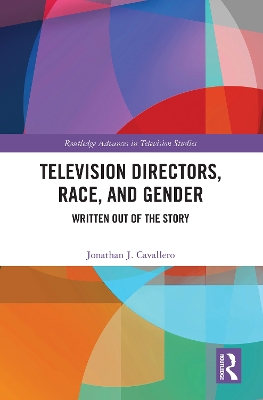Routledge Advances in Television Studies
1 total work
This book challenges the predominant framing of US television as a writer’s or producer’s medium by suggesting that television directors are a vital component of TV artistry.
Looking beyond a perspective that favors the narrative and economic aspects of television but undervalues the medium’s formal elements, the book explores how directors use the visual and aural to contribute layers of meaning that add to the thematic development of television texts. Starting from the belief that television aesthetics partially reveal the ways in which directors (and their collaborators) contribute to the overall thematic development of a program, the author offers five case studies that map out the ways that directors have contributed to television drama throughout the medium’s approximately 80-year history. By devoting special attention to the presence and voices of directors from marginalized backgrounds, the book creates opportunities to discuss television from perspectives that emphasize issues of diversity, equity, and inclusion.
This original and insightful work will appeal to students and scholars of television studies, television production and media production, critical media studies, media authorship, gender studies, and race and media.
